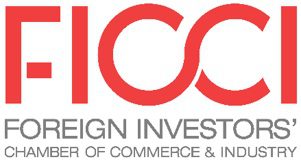The Foreign Investors’ Chambers of Commerce & Industry (FICCI) Bangladesh, the apex chamber representing Foreign Direct Investment (FDI) in the country, expresses deep concern over the recent decision to increase VAT/Supplementary Duty (SD) on a range of products without prior consultation with key stakeholders.
FICCI represents 90% of Bangladesh’s total FDI, covering high-revenue sectors such as tobacco, telecom, energy, and financial institutions, which collectively contribute approximately 30% of the total internal revenue. The recent decision to hike VAT, SD, and other taxes is likely to impact consumers while significantly raising the cost of doing business in the country. This measure threatens the financial stability and operational capacity of businesses that generate crucial tax revenue and drive economic growth.
FICCI identifies major concerns for businesses due to the increase in VAT rates to 15% under non-recoverable conditions for: Procurement Provider (7.5% to 15% with 100% input VAT non-recoverable), Repairs & maintenance (10% to 15% with 100% input VAT non-recoverable), Transport contractor (10% to 15% with 20% input VAT non-recoverable), Restaurant (5% to 15% with 100% input VAT non-recoverable).
Furthermore, general consumers will face potential price hikes as industries aim to minimize losses, with retail purchase costs rising by 2.5% due to an increase in the VAT rate from 5% to 7.5%.
The ultimate impact on the government will be a significant decrease in consumption, leading to a reduction in overall revenue. Hence, the strategy of increasing tax revenue through higher tax rates will likely be ineffective.
FICCI has consistently collaborated with the government to develop rational and sustainable fiscal and regulatory policies that create a conducive business environment and align with long-term economic goals. The absence of consultation in this case marks a concerning departure from this collaborative approach.
Policies formulated without extensive study or stakeholder consultation can negatively impact investor confidence and deter future FDI inflows. A lack of engagement with stakeholders before implementing significant policy changes may send negative signals to both domestic and international investors, raising concerns about the stability and predictability of Bangladesh’s business environment.
FICCI urges the government to reconsider and reevaluate the recent changes. It is vital that the government prioritizes transparent and constructive engagement with business communities, allowing for valuable insights into the implications of tax changes. Collaboration is essential for creating policies that balance economic growth with fiscal responsibility, ensuring Bangladesh remains an attractive destination for investment and innovation.
The chamber suggests the following way forward:
The government should promote strategies for industries to increase their sales revenue, which will automatically result in increased tax revenue.
The government should uphold the fundamental principle of VAT law. Under a single VAT rate, if 100% input VAT is recoverable, even if the VAT rate is increased to 15%, it will have a minimal impact. The input credit mechanism needs to be simplified, akin to other countries, so that all SMEs and retailers can easily take input tax credit on their purchases without needing price declarations (i.e., Input Output Coefficient) or maintaining complex VAT books. The government should focus on tracking all monetary transactions through simplified digitization.
FICCI reaffirmed their dedication to partnering with the government to enhance the national economy and create a sustainable environment where businesses can flourish.
For further information Please contact my Colleague Ms. Subarna Mostafa, Specialist, PR & Communication, her contact No :+8801728045819 and her e-mail: subarna.mostafa@ficci.org.bd
About FICCI
Foreign Investors’ Chamber of Commerce & Industry (FICCI) the apex chamber of multinational companies has been working as the development frontier of Bangladesh by creating significant footprints in economic growth since its journey started in 1963. As a leading chamber, FICCI represents Foreign Investors from Thirty-five (35) countries across the globe in Twenty-one (21) sectors in Bangladesh. In its six decades of excellent journey, around 210 member companies of this chamber are contributing around 30% internal revenue of the government and representing more than 90% inward FDI in Bangladesh.

